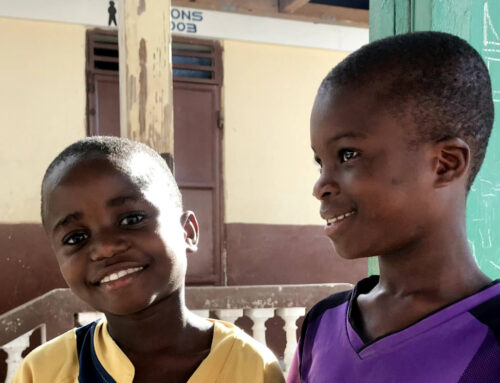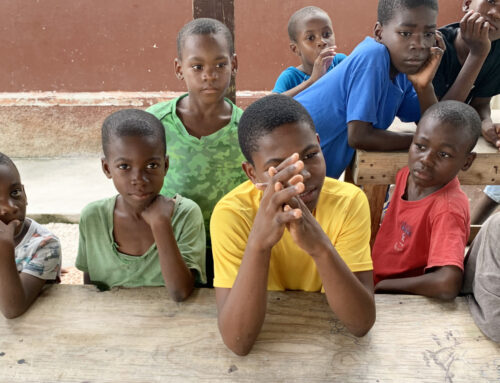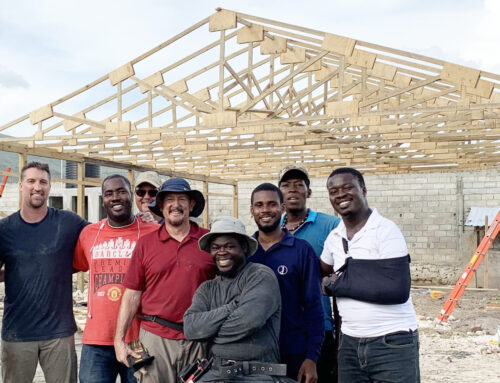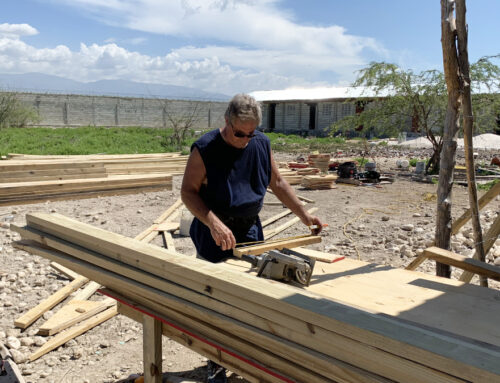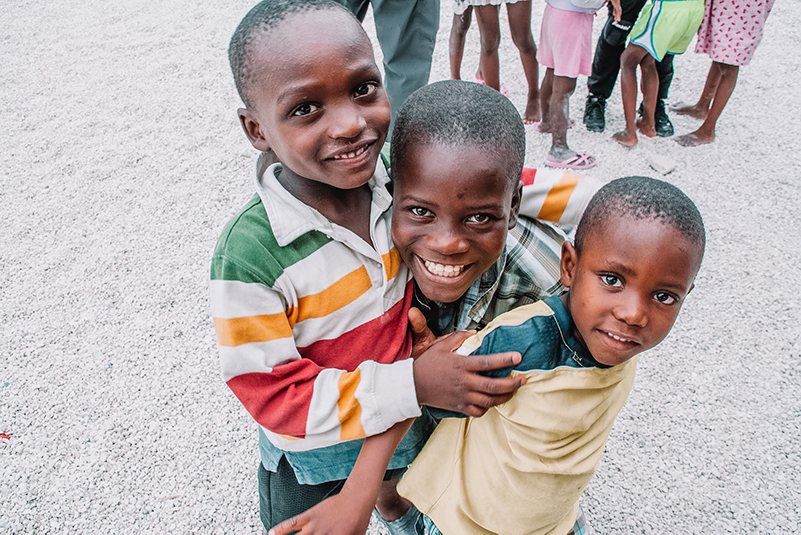 I remember my first interaction with the children at Regency Children’s Home in Onaville, Haiti. My team and I drove up to the gates and heard a number of children singing and chanting things in Creole. Our team had been told of some of their backstories earlier that morning, so when I heard sounds of joy and laughter as we entered the home, it was the last thing I expected!
I remember my first interaction with the children at Regency Children’s Home in Onaville, Haiti. My team and I drove up to the gates and heard a number of children singing and chanting things in Creole. Our team had been told of some of their backstories earlier that morning, so when I heard sounds of joy and laughter as we entered the home, it was the last thing I expected!
The children who we were so sweetly greeted by had once been entitled a “restavek.” The title “restavek” has been used to describe an abused child that lives with and serves a family that is not his/her biological family. These children have been given to a “host family” in the hope of a better life in exchange for their labor and service. The children are either sold by their own family to another that is financially able to provide, or they are orphans with no family to care for them. The children are extremely vulnerable, living as modern-day slaves.
It’s been found that the country of Haiti is home to approximately 300,000 restaveks. This means approximately 1 in 15 Haitian children is currently enslaved.
The original term and meaning of this title “restavek” was once used as a verb. Meaning “to stay with,” it originally described the action of living alongside another, but has now turned into a dreadful noun that does not even come close to properly describing the conditions in which these children live. The majority of restaveks in Haiti are physically, sexually, and emotionally abused. They are regularly starved, beaten, and taken advantage of sexually. Grievously, this reality is a common occurrence and has become a cultural norm to the people of Haiti. While child labor continues to be a topic of conversation addressed within the country’s laws and reguations, the corruption of the government and the imbalance of power has resulted in there being little to no actual advocacy or aid for those in the country who find themselves face-to-face with this reality.
Getting to interact and being in the present with just a small number of these children has inarguably served as the most humbling experience of my life to me personally. To watch a 13-year-old girl desire to be held and loved as if she were only a 4-year-old shows the deficiency of the love in their lives. Sitting with children who have physical scars to show the pain they endured that I will never experience in my lifetime is sobering. These children eagerly desire and beg for all the love and care that they were robbed of in their short lifetimes.
It is such a joy to go back and visit these children at the Regency Children’s Home every year. They have grown immensely: physically, mentally, emotionally, and spiritually. They are being met with the love of the Lord and the love of the church and ministry. They were once enslaved to hopelessness and now walk in the freedom of our perfect Protector.
Once called “restavek,” they are now called “free in Christ.” Continue praying with us for those who have not been able to see this freedom yet. If you’d like to meet some of the faces that are being supported through the ministry or would like to make a financial contribution to these children, check out our children homes.

